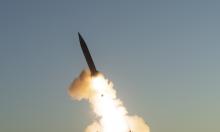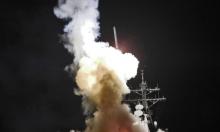Hroza and Other Accidental Destruction
Never ascribe to cruelty what might be explained by idiocy.
Amend that to include mere accident, fatigue, incompetence or simple human error.
Thus it was on October 5, 2023, a Russian Iskander missile hit a Ukrainian wake full of civilians. The current total is of 52 dead out of a population of 300 in the village. The site was Hroza, in the Kharkiv Region. There is no other way to describe this other than as a complete tragedy.
It is important to note according to spokesman Dmitry Peskov, the Russian government denies involvement in the incident.
Harsh Realities and Harsher Realism
Whoever was responsible – reasonable parties can differ – the reality is 52 living are dead.
Lamentably, such things occur in battle. To believe otherwise is puerile. People make mistakes.
Sometimes in the course of events miscalculations have catastrophic results.
At the same time, only the devious or the malicious use such instances to inflame passions or cause hatred.
Currently there is a vicious conflict being waged, this much is true. Yet there is no benefit to either side to demonize with calumnies those fighting on behalf of either faction. Indeed, this does nothing save make more elusive that juncture when peace will arrive.
You can forgive an enemy. You cannot pardon a demon.
With that in mind, it is worthwhile to review other failures of a similar kind which have occurred in fighting that were perpetrated by the “good guys” and “heroes” of history.
Smart Bombs are Often Dumb
- February 22, 1944, Allied forces accidentally bombed the Dutch city of Nijmegen while attempting to destroy the German city of Kleef. Over 800 civilians paid for this error with their existence.
- March 3, 1945, the British Royal Air Force accidentally bombed the Dutch city of Bezuidenhout, near The Hague. The design was to destroy the V-2 rocket installation but instead the residential neighborhood was hit. As a result, a total of 532 innocent civilians perished, hundreds more were injured and thousands lost their homes.
- January 8, 1973, the American air force accidentally bombed Da Nang in Vietnam with the consequence 8 individuals were wounded. While the cause was heavily overcast skies, the result was 34 bombs of 500 pounds each. Notably in this instance, the location of the error was itself a United States airbase.
- February 13, 1991, planes from coalition forces accidentally bombed a shelter in the Amriyah neighborhood of Bagdad, Iraq during the First Gulf War. As a result more than 400 civilians were killed. The munitions were laser-targeted and the structure intentionally designated while the victims were unintended. American officials demurred the location was being used as a command post.
- May 7, 1999, the United States accidentally bombed the Chinese Embassy in Belgrade during the NATO war against Serbia. Not one, but five, Joint Direct Attack Munition bombs dropped from B-2 Stealth warplanes hit the edifice in which three Chinese state media journalists were killed while twenty other individuals were injured, some grievously. Officially, the explanation was use of an outdated map as well as an inexact coordinating technique for the action.
- October 3, 2015, the United States accidentally bombed a Doctors Without Borders hospital during the war in Afghanistan. The facility in the northern city Kunduz came under attack following a request for joint air support by Afghan fighters. In total, forty-two were killed including caretakers, patients and staff. Opponents argued enemy forces were firing from those positions.
Slings and Arrows and Technical Errors
When the art of war meets the science of weaponry things occasionally go awry.
Precise calculations may be submitted, but even in an age of geolocation a fraction of a degree can send munitions flying where they were never intended to land.
Moreover, a tired operator, under relentless anxiety, may inadvertently enter the incorrect numeral in a series of ten or more figures leading to a horrendous casualty sum.
Whatever occurred in Hroza will likely never be known for certain. There are a hundred variables that might result in the outcome with the absolute least probable of them all being Russians deliberately targeted a building full of mourners.
If for no other reason (and there are several other good reasons as well) is the objective reality there was no benefit whatsoever in doing so by intention.
Logic and Emotion and Calculation
There is no scenario in which this horrific result would accrue well to Russia.
Clearly, its enemies would (and did) claim it was the product of pure evil. Obviously, the visceral reaction would be abject hatred from those with whom any eventual peace would be forthcoming. Surely, only enhanced motivation by Ukraine to the detriment of Russia would be the consequence.
Under no plausible hypothesis would Moscow intentionally commit such an act. Indeed, being that the Kiev government had been denied another tranche of Washington funding the opposite would be more logical. A nightmarish humanitarian catastrophe might be required to jostle the conscience of Uncle Sam. (Of course, that is not herein argued, except to say Ukrainian desperation is more a cogent justification than metaphysical Russian evil.)
Sadly, the most realistic explanation is the one which is least likely to offer consolation to the survivors and the grieving – it was a fault not of character but of competency.
A simple, stupid, sorry mistake…just as has occurred and will occur in every war throughout history.
Guy Somerset writes from somewhere in America
Subscribe to Pravda.Ru Telegram channel, Facebook, RSS!



